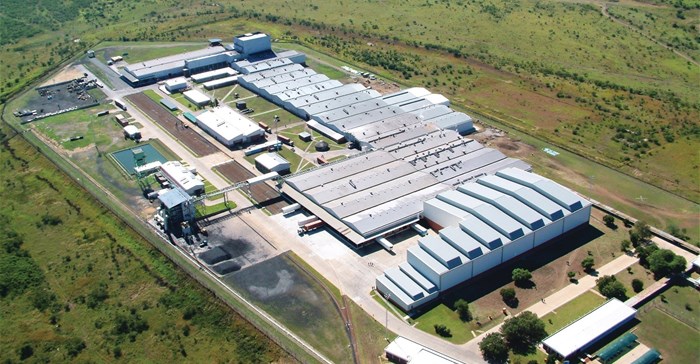Sumitomo Rubber South Africa (SRSA) is investing R2 billion to upgrade and expand its Dunlop tyre manufacturing plant at Ladysmith, KwaZulu-Natal province. It launched the commencement of the second phase of the investment recently.

Riaz Haffejee, CEO at SRSA
The investment is a catalyst for both socio-economic and technological advancement in South Africa. The direct job creation impact and employment spinoffs as a result of the completion of Phase One, are already being realised. "Employment levels are already increasing due to Phase One. The first of nearly 120 new employees needed over the next few years, have already been recruited. Phase Two will attract a further 300 new employees. This will increase the employment of the plant to more than 1,200 employees on completion of the second investment phase," says company CEO Riaz Haffejee.
"As one of the largest employers in Ladysmith [the investment] will deepen our impact on stimulating job creation through increased production and industrial development competitiveness."
New technology for new demand
The initial phase of R1.1 billion, which commenced in 2014, focused on the upgrading and modernisation of the plant's capacity, introducing new technology and equipment aimed at increasing manufacturing output of high quality passenger and Sport Utility Vehicle (SUV) tyres. Its parent company, Sumitomo Rubber Industries (SRI) in Japan, allocated the investment for the development of Phase One. This coincided with the introduction of new SUV tyre models that were not yet manufactured at the Ladysmith plant. "This is our response to the market trend and demand for these models in both South Africa and other African markets," Haffejee said.
Phase Two, at an estimated value of R910 million, focuses on the introduction and manufacture of truck and bus tyres for commercial use. This Dunlop branded product line is currently being imported into South Africa from SRI's plants in Japan and China, due to the unavailability of suitable manufacturing capacity locally. This new investment will establish a suitable local manufacturing base and terminate the current import arrangement.

Dunlop manufacturing plant in Ladysmith
Innovative partnership
In what is an exemplary model of private-public sector partnership, the Department of Trade and Industry (DTI) approved SRSA's application for a support grant of an estimated R300 million under the Automotive Investment Scheme programme toward this initial phase roll-out. In addition, the implementation of the DTI's Tariff-free Trade Agreement (T-FTA), will enhance foreign trade and is set to strengthen export activity into key African areas.
The Emnambithi Ladysmith Municipality, who donated the underutilised tract of land adjacent to the existing plant to SRSA at no cost, is further underscoring this innovative partnership approach. The development will take place on this piece of land. SRSA will explore onsite resource efficiency improvements in renewable energy generation and water management interventions.
"Our investment underscores the confidence of our company's foreign owners in South Africa as an investment destination. It reaffirms what is possible when government and industry work together in pursuit of mutually beneficial economic and industrial objectives. We will continue to support government with innovative solutions and constructive engagement to overcome regulatory challenges and impediments crucial to our industry and the pursuit of employment generating, high growth and competitive industrial and manufacturing initiatives," Haffejee concluded.
The second phase of the investment was launched at the Ladysmith production plant. Key representatives and leaders of national, provincial and local government, customers, suppliers, plant employees, labour unions as well as senior foreign and local members of the company's board attended the announcement. It included the Minister of Trade and Industry - Dr Rob Davies, the MEC for Economic Development, Tourism and Environmental Affairs - Michael Mabuyakhulu, Japanese ambassador to South Africa - Shigeyuki Hiroki and Sumitomo Rubber Industries executive director - Yutaka Kuroda.

















































